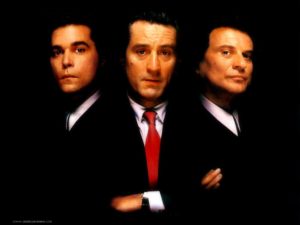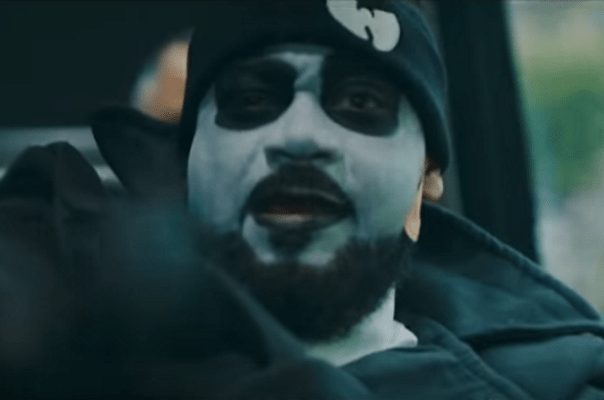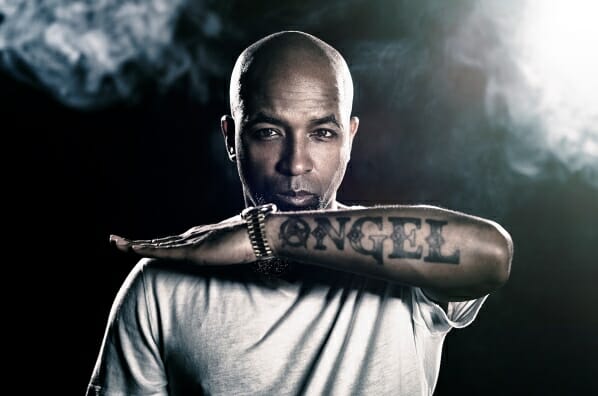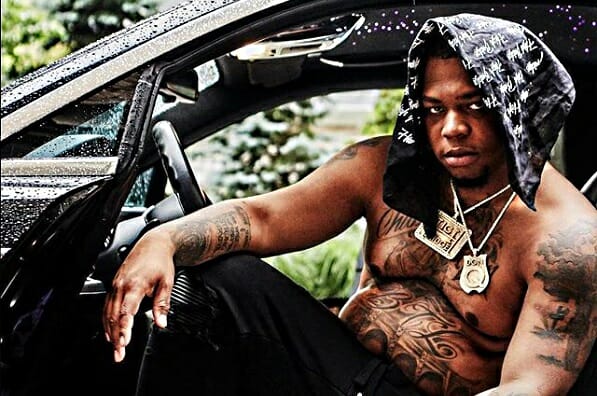On September 19th, 1990, a gangster film quite unlike any other made its debut on movie screens across North America. Though it was warmly received, its release hardly signaled the beginnings of a cultural phenomenon. It didn’t have the instantaneous impact of The Godfather but over time its shadow would loom increasingly large, spurred in great part by its popularity on home video and cable television. It is now counted among the greatest and most recognizable films of its kind and considered a classic in its own right.
Based on Nicholas Pileggi’s bestseller Wiseguy, Goodfellas tells the story of mob turncoat Henry Hill. The film follows Hill’s induction into the mob as teen through his eventual and shameful retreat into the witness protection program. The book provided readers with an unprecedented look into the inner workings of the Mafia, from a foot soldier’s perspective. The film holds remarkably true to that aesthetic thanks to a script by Pileggi himself and director Martin Scorcese. Scorcese had already traveled down this road before with his breakthrough film Mean Streets. Goodfellas allowed Scorcese a chance to delve into the mind and lifestyle of a Mafioso in ways that neither he nor the audience could have ever dreamed.
Eschewing the epic scope and Shakespearian overtones of Francis Ford Coppola’s Godfather films, Goodfellas is a decidedly blue collar affair. These characters don’t call shots and make decisions from the confines of a mansion; they operate on the street level. Crime is a 24 hour a day job that often gets dirty and quite bloody. The spoils of war are indulged heartily, but the grind remains constant, exhausting and inescapable. Assorted crew members are involved in any number of hustles at a given time. Hijacking, extortion, theft and various other scams and rackets make up their day. Their work ethic is old school.
Hill is portrayed by Ray Liotta, who has since become inextricably linked with the character, thanks in part to one of the most effective voice over jobs in modern film. Liotta’s narration envelops the viewer in an insular world of gaudy excess and giddy abandon. Hill is a stand-in for the audience of this kind of film: admiring the lifestyle at arm’s length. The allure proves too much for him, and he decides to take the plunge. The film is a family photo album of gangster, making the events that unfold seem that much more accessible to the layman.
By far, the most memorable character of the film is Tommy DeVito, portrayed by Joe Pesci. Tommy is malevolence incarnate, reveling in playing jokester and tormentor, yet unable to be on the receiving end. Violence is his solution to all problems, and his capacity for it far outmatches that of his peers. Tommy is the definitive “crazy guy” of modern cinema. Pesci channeled the very worst character traits of every high school bully that ever lived. His instincts served him well, as his performance was awarded by The Motion Picture Academy with 1990’s Best Supporting Actor Oscar. The essence of Tommy DeVito lives on in other “live wire” characters like O-Dogg from Menace II Society, which used Goodfellas as its blueprint.
The other characters are no less memorable. Robert De Niro plays the background as legendary hijacker and hit man Jimmy Conway (based on real life mob legend Jimmy Burke). Usually the center of attention in early Scorcese films, De Niro uses his method acting talents in a much more subtle way this time around. Lorraine Bracco plays fiery Karen Hill, the prototypical nice girl with a thing for bad boys. The ease with which she falls into her role as a gangster’s moll is both chilling and totally convincing. You would be hard-pressed to find a more dysfunctional relationship on screen.
Despite its fiercely ethnic milieu (the film has been criticized for offering quite possibly the most stereotypically negative portrayal of Italian Americans on screen), the film has always had unmistakably universal appeal. Rappers have always been enamored by it. Filmmakers as diverse as Jon Favreau, Antoine Fuqua, The Hughes Brothers, and Frank Darabount are on record as being huge admirers. Its influence can clearly be seen in films like Donnie Brasco and the hugely successful HBO series “The Sopranos.” The portrayal of mobsters as gaudy, oafish goons has become de rigueur. Anything else is considered overly romanticized fluff. Thank Martin Scorcese for that.
Goodfellas was adorned with a number of nominations at the 1990 Academy Awards including best picture, director and adapted screenplay. Though Joe Pesci scored the only win, the legacy and significance of the film stretch far beyond whatever accolades it did or didn’t receive. Twenty years later, it is acknowledged as the most authentic crime film ever made as well as one of the most entertaining. Though it may never surpass The Godfather in terms of reverence, it has settled for being considered the realest. As hard as it may to be to believe, that title is far more coveted in certain circles than any gold statue. Just ask any Hip-Hopper over thirty.
Follow Malice Intended on Twitter @ http://twitter.com/renaissance1977
Follow Us on Twitter @ http://twitter.com/planetill
Join Us on the Planet Ill Facebook Group for more discussion
Follow us on Networked Blog






2 thoughts on “Goodfellas: Happy 20th Anniversary”